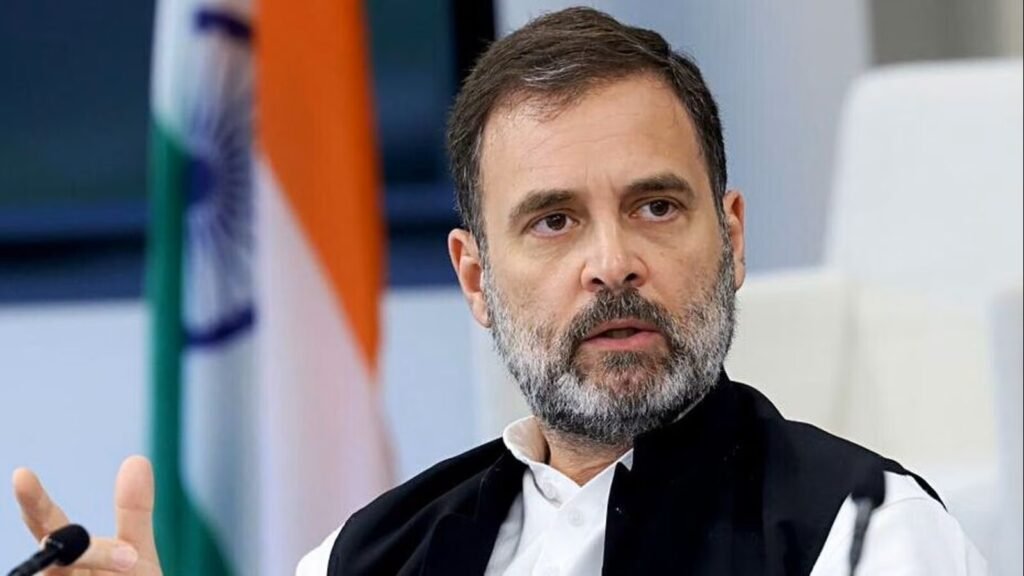
Introduction Rahul Gandhi, a prominent figure in Indian politics, has been at the forefront of the Indian National Congress (INC) for nearly two decades. As a member of the influential Nehru-Gandhi family, his life and career have been closely watched and analyzed. This article delves into his biodata, exploring his early life, education, political milestones, and vision for India.
Early Life and Education
Born on June 19, 1970, in New Delhi, Rahul Gandhi is the son of Rajiv Gandhi, a former Prime Minister of India, and Sonia Gandhi, the long-serving President of the INC. His grandmother, Indira Gandhi, and great-grandfather, Jawaharlal Nehru, were also Prime Ministers, making his family one of the most influential in Indian history.
Rahul Gandhi’s education reflects his global upbringing. He attended St. Stephen’s College in Delhi before transferring to Harvard University. Due to security concerns following his father’s assassination in 1991, he completed his undergraduate degree at Rollins College in Florida under the pseudonym “Rahul Vinci.” He later earned a Master’s degree in Philosophy from Trinity College, Cambridge.
Family Legacy and Influence
The Nehru-Gandhi family has been synonymous with Indian politics for decades. Rahul Gandhi’s lineage carries a legacy of leadership, but it also comes with immense expectations and scrutiny. His father, Rajiv Gandhi, and grandmother, Indira Gandhi, were both assassinated, making security a significant concern throughout his life.
Despite the challenges, Rahul Gandhi has embraced his family’s legacy, often emphasizing the values of democracy, secularism, and social justice that his ancestors championed.
Political Career Milestones
Rahul Gandhi officially entered politics in 2004, contesting and winning the Lok Sabha seat from Amethi, Uttar Pradesh. This marked the beginning of his journey as a Member of Parliament (MP) and a leader within the INC.
Key Positions Held
- General Secretary of the All India Congress Committee (AICC): Focused on youth and grassroots mobilization.
- Vice President of the INC: Elevated in 2013, signaling his growing influence within the party.
- President of the INC: Took over the reins in December 2017, succeeding his mother, Sonia Gandhi.
During his tenure, Rahul Gandhi has been a vocal critic of policies he perceives as divisive or detrimental to India’s unity. He has also led several campaigns addressing issues like unemployment, farmers’ distress, and healthcare reform.
Key Achievements and Contributions
Rahul Gandhi’s political career is marked by his commitment to social justice, youth empowerment, and inclusive growth. Here are some of his notable contributions:
- Youth Empowerment: Revamped the Indian Youth Congress and the National Students’ Union of India to encourage young leaders.
- Legislative Support: Advocated for landmark legislations like the Right to Information (RTI) Act, MGNREGA, and the Food Security Act.
- Bharat Jodo Yatra: A nationwide campaign aimed at uniting people across diverse backgrounds and addressing pressing issues like communal harmony and women’s safety.
Challenges and Controversies
Rahul Gandhi’s political journey has not been without hurdles. The INC faced significant defeats in the 2014 and 2019 general elections, leading to questions about his leadership. Critics have often labeled him as inexperienced, while supporters argue that he represents a new vision for India.
Controversies surrounding his remarks and decisions have also attracted media attention. Despite these challenges, Rahul Gandhi continues to advocate for his vision of a progressive and inclusive India.
Rahul Gandhi’s Vision for India
Rahul Gandhi envisions an India that upholds democratic values, promotes economic equity, and fosters social harmony. His speeches often emphasize the need for transparency, accountability, and participatory governance.
Key Proposals
- Caste-Based Census: Advocates for better representation and resource allocation for disadvantaged communities.
- Economic Reforms: Calls for policies that address unemployment and support small businesses.
- Social Justice: Focuses on uplifting marginalized communities through targeted initiatives.
Conclusion: Rahul Gandhi’s Impact on Indian Politics
Rahul Gandhi’s journey in Indian politics reflects a blend of tradition and modernity. As a representative of the Nehru-Gandhi legacy, he carries the weight of history while striving to address contemporary challenges. His commitment to social justice, youth empowerment, and democratic values continues to shape his political approach.
While his career has faced setbacks, Rahul Gandhi remains a significant figure in Indian politics. His vision for an inclusive and progressive India resonates with many, making him a leader to watch in the years to come.